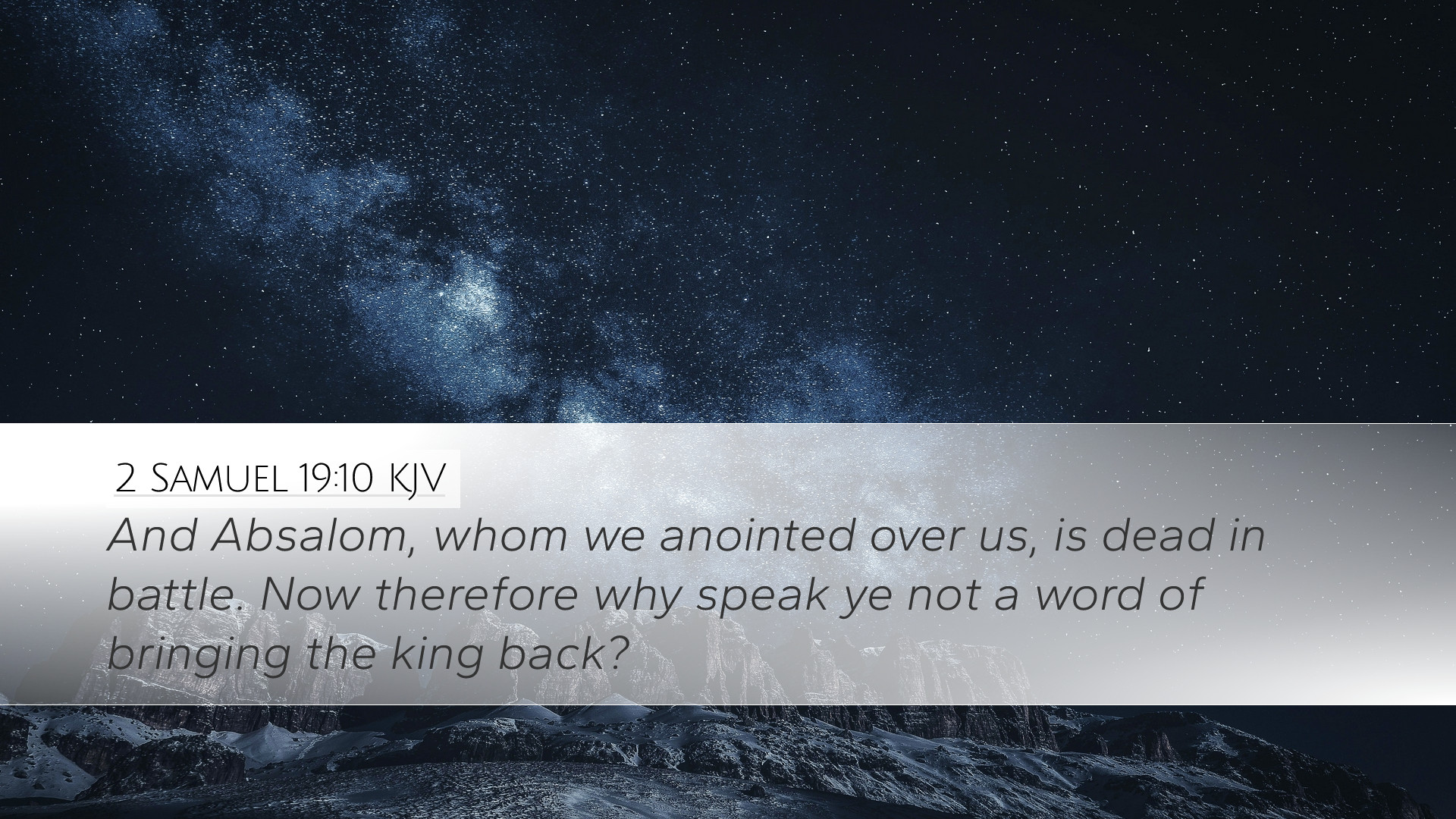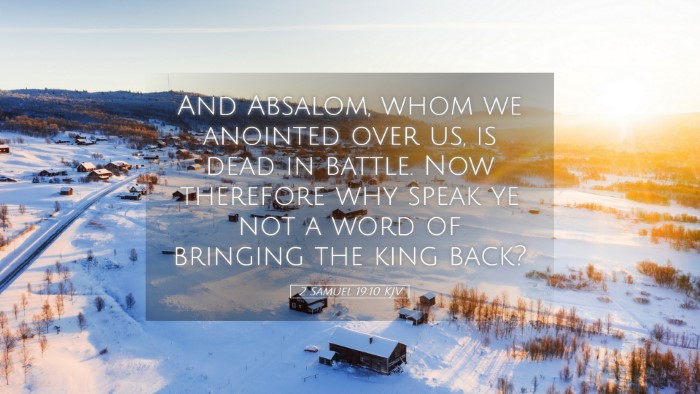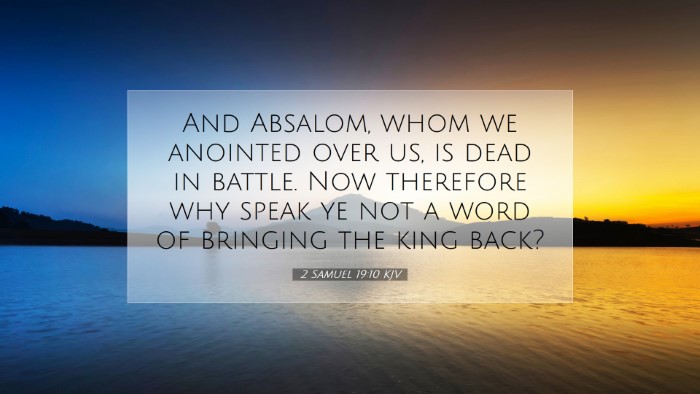Commentary on 2 Samuel 19:10
Verse: 2 Samuel 19:10 - "And Absalom, whom we anointed over us, is dead in battle. Now therefore, why do ye hold your peace?"
Introduction
This verse encapsulates a pivotal moment in the narrative of David’s reign and highlights themes of loyalty, leadership, and the tragic consequences of rebellion. Absalom, despite being a son of David, led a coup against him, seeking the throne. His death brings a critical juncture in the lives of the people and their king.
Contextual Analysis
In the context of 2 Samuel 19, we see David mourning the death of Absalom, demonstrating a father's overwhelming grief. Yet, the verse acknowledges the tension between the loyalty owed to a king and the familial ties that can complicate such loyalty.
Historical Significance
- Leadership Crisis: The verse marks a significant crisis in leadership. The people who once supported Absalom now find themselves in a precarious position as David’s leadership is restored.
- Shift in Loyalty: The sentiments captured reflect a shift in the people's allegiance and an urgent call to recognize the reality of Absalom’s demise.
- Impact of Rebellion: The lamentation and subsequent silence of the people signify the sobering impact of rebellion and its cost.
Commentary Insights
Matthew Henry
Matthew Henry notes that the verse serves as a turning point, not just in David's life but importantly in Israel’s national identity. He highlights the contrast between the fleeting glory of Absalom and the enduring covenant of God with David. The question posed—"why do ye hold your peace?"—is a challenge to the people, calling them to recognize the providential hand of God in restoring David. Henry suggests that it reflects the need for a decisive response to divine providence.
Albert Barnes
Albert Barnes emphasizes the political ramifications of Absalom’s death. He provides a critical examination of loyalty within the ranks of those who supported Absalom. Barnes stresses that the mourning of a rebellious son juxtaposes the rightful place of David as king, creating an uneasy tension among the people. He interprets the silence of the subjects as indicative of their inner turmoil, reflecting the gravity of their past decisions to support Absalom.
Adam Clarke
Adam Clarke reflects on the emotional and psychological state of both David and the people of Israel. He examines the mourning of the loss against the backdrop of the chaos Absalom's rebellion had created. Clarke suggests that the verse captures not only David's personal tragedy but also serves as a meta-commentary on the issues of justice and mercy in the realm of governance. He posits that this moment prompts believers to reflect on their own allegiances and the spiritual ramifications of their actions.
Theological Reflections
This verse offers deep theological insights relevant for contemporary readers. It touches on the nature of God’s sovereignty amidst human rebellion and the cost of sin. The emotional weight of David's grief, as a father and king, serves as a poignant reminder of the complexities of leadership and the moral dilemmas faced by those in authority.
God’s Sovereignty
The death of Absalom becomes a testament to God’s sovereign plan. Despite human machinations, God’s purposes prevail, often through painful circumstances.
Leadership and Mourning
The duality of David's role—as both a grieving father and a rejoicing king—calls modern leaders to balance personal emotions with public duty, underscoring the weight of leadership amidst crises.
Call to Action
David’s call to action serves as a reminder for believers today. In light of God’s sovereign plans, believers are prompted to vocalize their faith and take decisive steps in their spiritual journeys, urging congregational engagement in recognizing God's work in their lives.
Conclusion
2 Samuel 19:10 echoes through the corridors of time as an enduring lesson on the heart of divine sovereignty, the costs of rebellion, and the complexity of human relationships. For pastors, students, and scholars, this verse serves both as a historical moment and a rich theological ground for exploring the profound depths of faith amidst turmoil. It invites us to examine our own allegiances, reflect on the eternal implications of our choices, and engage profoundly with the narrative of God's kingdom.


